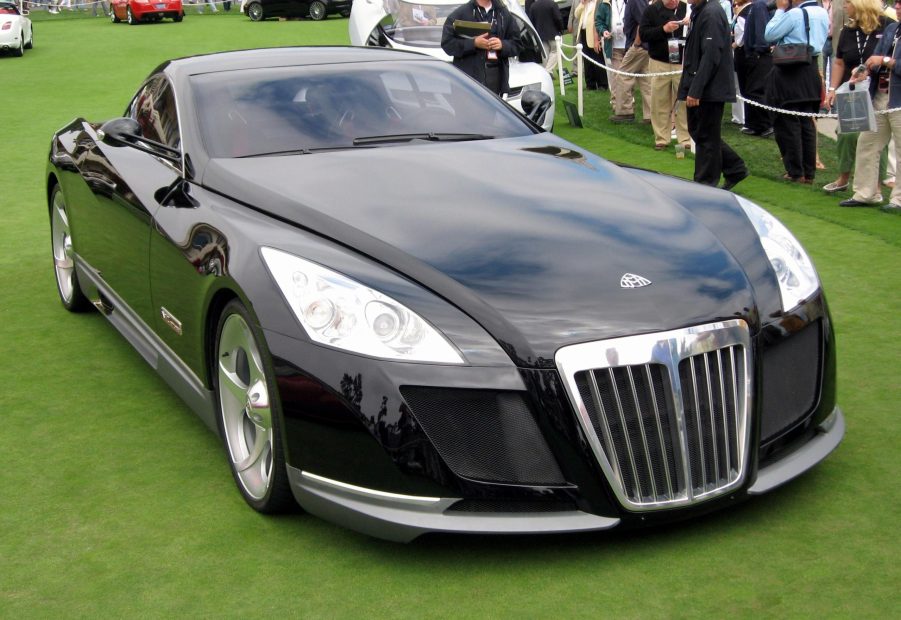
8 of the Rarest Cars in the World
Rare cars are so valuable not just because they were made in limited quantities, but their age and unique design play a big part. Of course, there are many factors that draw collectors to rare cars, to point that many collectors will stop at nothing to have them. But which cars are the most sought after and the rarest? Here are eight of them.
8. 1969 Chevrolet Camaro ZL1 – $1 Million

If you want the most powerful and quickest Camaro, then the 1969 Camaro ZL1 was one of the most desirable Chevy performance cars ever built, Hagerty reports. This super-rare Camaro sports an all-aluminum, 427 cubic-inch V8 that produces 430 hp. But that’s not what makes it so rare, in actuality, this Camaro ZL-1 was a special-order car that many used in NHRA’s Super Stock class because it was such a powerhouse. Nowadays, you’ll be lucky to find them for $1 million at auction.
7. Tucker ’48 – $1.2 million

Also known as the “Tucker Torpedo,” the Tucker 48 blazed some trails back in the 40s. It had a directional third headlight known as the “cyclops eye,” which set this car apart from the rest at the time. It was heralded as the “car of tomorrow” by Preston Tucker, the man who designed it. But unfortunately, only 51 units were ever produced before the Tucker brand closed its doors in 1949.
6. Aston Martin Bulldog – $1.3 million

Take one look at the Aston Martin Bulldog and we wouldn’t blame you for getting Tesla Cybertruck vibes. Produced in 1980, the Bulldog was powered by a twin-turbo 5.3-liter V8 engine and looked like a futuristic production car at the time. Only 12 to 25 examples were ever produced, making the Bulldog an extremely rare sight now.
5. 1954 Oldsmobile F-88 – $3.3 million

The Oldsmobile F-88 was a concept car penned by Harley Earl. It was a two-seat roadster with a 324-cubic-inch V8 that made 250 hp. According to GM Authority, it was never put into production since it would have threatened the Corvette at the time. As such, only two copies were ever made and it’s now the rarest Oldsmobile that money can buy.
4. 2008 Maybach Exelero – $8 million

The Maybach Exelero is based on the Maybach 57 and has a turbocharged V12 under the hood that produces a whopping 700 hp. It has a top speed of 218 mph and competes with the likes of Rolls-Royce and Bentley. If you want all of the power, speed, and luxury in one expensive package, then the Maybach Exelero is a great choice. Too bad it costs a cool $8 million.
3. 1970 Porsche 917 – $14 million

The 1970 Porsche 917 and Steve McQueen go hand-in-hand since it was the car that the actor/racer drove in the movie “Le Mans.” Aside from its Hollywood fame, the Porsche 917 gained notoriety with its racecar looks and mid-mounted flat-12 engine. There were only a few in production and the car used in the movie crossed the auction block with an ending bid of over $14 million.
2. 1957 Ferrari 250 Testa Rossa – $39.8 million

The Ferrari 250 Testa Rossa made its debut at the 1957 24 Hours of Le Mans race, and although it didn’t finish the race, it did win three other Le Mans races in addition to four wins at Sebring. Under the hood is a 300-hp V12 with six Weber carburetors and when it comes to handling, it’s about as good as a genuine racecar as any other. There are only 34 models in existence, which is why it can command such an astronomical selling price at auction.
1. 1964 Ferrari 250 GTO – $70 million

If you want the rarest and one of the most expensive cars on the planet, then the 1964 Ferrari 250 GTO is what you seek, but you’ll need to get in line behind the other car collectors. Aside from its spectacular looks and potent 3.0-liter V12 engine, what makes the Ferrari 250 GTO so special is that it was a homologation car produced by the brand from 1962 to 1964. The last iteration known to cross the auction block sold for $70 million, so if you want one, you better have deep pockets that have even deeper pockets inside of them.
These ultra-rare cars are more prevalent on posters than in real life
Considering many of the aforementioned cars are extremely rare in production, it’s clear that they’ll mainly live on as wall posters and screen savers for most people. But for the rare and lucky collectors, they’ll live on in garages or even museums to preserve their values.



